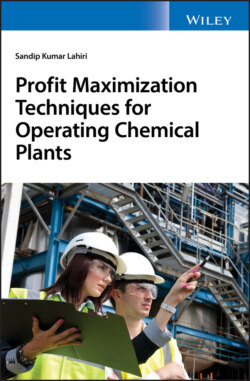Читать книгу Profit Maximization Techniques for Operating Chemical Plants - Sandip K. Lahiri - Страница 64
3.1.3 Step 3: Assessment of the Base Control Layer of the Plant
ОглавлениеThe regulatory proportional, integral, and derivative (PID) control loop forms the base layer of a control system. It is of the utmost importance to assess the performance of the base control layer and improve upon it before trying to build a PMP application over it. In this step an overall assessment of the base control layer was performed scientifically and corrective steps were taken to rectify limitations, if any. This essentially means identification of any problems in control valves (like hysteresis, stiction, valve oversize, or undersize phenomena), measuring sensors (like noise, range of instruments, calibration, etc.), PID controller tuning, oscillation in process parameters, etc., and application of various techniques like controller tuning, maintenance of control valves, calibration of instruments, etc., to rectify the problems (Lahiri, 2017a). Enhancement of control performance actually reduces the variations in key economic parameters of a process and then the DCS panel engineer is able to push the process further near to its constraints. Using only this step, a 1–5% increase in profit has been reported in various literatures by various global chemical companies.
